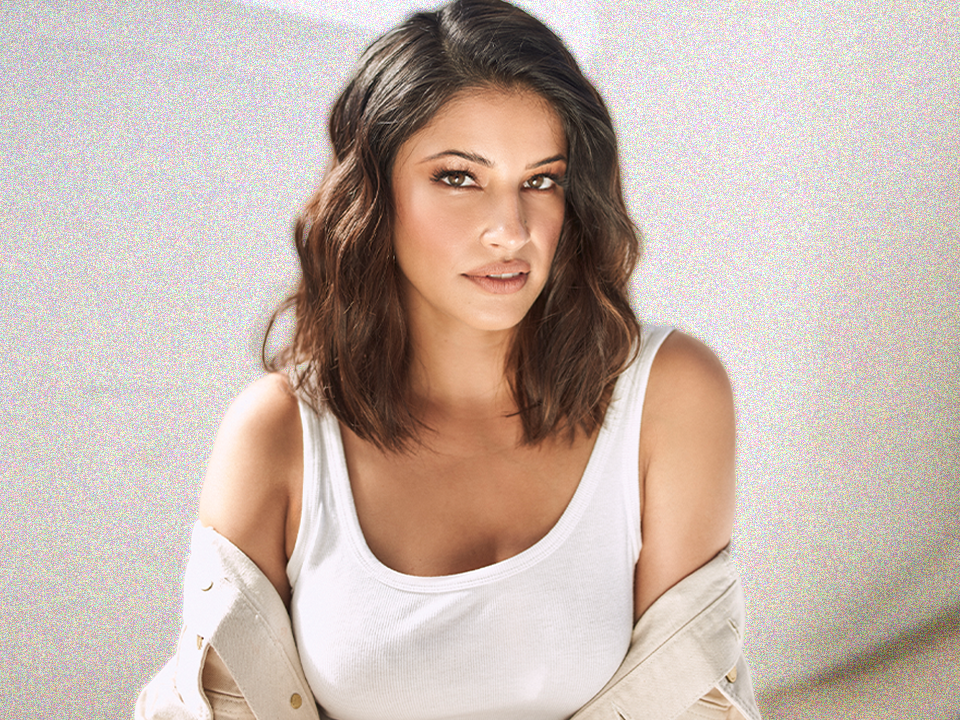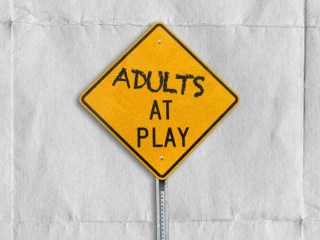Richa Moorjani Identifies as a Worrier and a Warrior
The ‘Never Have I Ever’ and ‘Fargo’ actor shares how she deals with anxiety and stress.
Most known for her role as biologist Kamala Nandiwadal on Netflix’s Never Have I Ever (NBD, but she beat out 15,000 people in a global casting call), Richa Moorjani just made her return to TV as a police deputy in FX’s Fargo Season 5.
“My character is dealing with a lot in this season of Fargo. She is drowning in financial debt,” Moorjani tells Wondermind. “She also has this really toxic marriage that she's dealing with and a husband who is a misogynistic asshole, for lack of a better word, and is not helping the situation with the debt.” We’re intrigued. “So she's dealing with a lot this season, but she's definitely on a journey towards finding her power.”
Offscreen, though, it’s safe to say Moorjani is in a much better mental space than her TV character. As a dedicated mental health advocate, Moorjani is all about prioritizing self-care, especially when she’s working on a new project, she says. Here, she talks about her mental health routine, how she helps curb stigma, and the book that feels like therapy for her.
[Sign up here to never miss these candid conversations delivered straight to your inbox.]
WM: How are you doing lately?
Richa Moorjani: My mental health is stable. Whenever something like a show comes out, there's a lot of nerves and a lot of excitement, and that can definitely be a lot on the mind and body. So it's during times like this and with things going on in the world that I definitely make an extra effort to protect my mental health and my overall health and to really dedicate myself to my self-care practices.
WM: What are some ways you take care of your mental health?
RM: I have a pretty robust self-care/spiritual practice and routine that I try to do every day in the morning. One rule I have for myself is, unless I have to, I try not to look at my phone [except to check the weather or the time] for the first two hours that I'm awake. In those two hours, I meditate, I have a breathing practice, I stretch, I maybe do a workout, I have a nice breakfast.
The days where I have the time to do that, I feel the most grounded and centered. It really does have an impact on how I approach whatever else happens that day. And there are many tools that I have when things are overwhelming. I journal. I go to therapy. I'm very lucky to have a strong support system, which I think is integral to staying stable during tough times. And I listen to a lot of spa music on my Alexa at home.
WM: What therapy lessons have stuck with you?
RM: Well, a lot of my personal stress and anxiety comes from worrying about people. That's something I've dealt with my whole life—worrying about people in my family or worrying about my dog. I'm just a big worrier. Maybe warrior too. But that does cause me to have quite a bit of anxiety, and it keeps me up at night sometimes.
One thing therapy has taught me is to focus on my own plate and that it's not my responsibility to fix other people. I'm a very empathetic person and take on a lot of people's energies. So therapy has really taught me to have strong boundaries and to prioritize my own mental and physical health. [It] sounds selfish, but actually, I think that if you're able to take care of yourself and feel grounded and centered and healthy, your ability to help other people is much more effective.
WM: You've been open about chronic pain before. How has chronic pain impacted your mental health, and how do you take care of yourself when you're physically hurting?
RM: It's like a vicious cycle because stress and anxiety can cause you to have physical symptoms and physical pain. But [sometimes] I'm having a great day, and then my physical pain comes back and I have pain in different areas of my body. When that happens, it causes me to feel stressed and anxious because I'm like, Why am I in pain again? And then that stress and anxiety causes more pain.
I don't really have an answer. It's something I'm still struggling with and dealing with, to be honest. But that is why it is so important for me to really maintain my self-care practices and reduce stress as much as possible in my life because I know that stress just makes everything worse.
I've just had a really awesome appointment with a functional medicine doctor that I'm seeing, and I was telling her that I've been feeling pretty good the past couple weeks, and let's just hope it stays that way. And she [said], “The most important thing to remember when you're on a journey towards healing is that you just have to take it one day at a time. So you feel great today, honor that and don't worry about what you're going to feel like tomorrow. And if tomorrow you wake up and you're in pain, it's just tomorrow. It's just one day. Take it one day at a time.”
WM: When you are having a tough day, are you somebody who freely asks for help?
RM: I've always been somebody that tries to figure things out on my own. Maybe it's not good to feel this way, but I hate being a burden on other people. I hate dumping my issues on other people. That's why I've always tried to be self-reliant.
But at the same time, I think I have a pretty good balance of expressing when I'm not OK, whether it's because I need help or I just need space. I think I'm pretty good at expressing that. I think it's good to have a balance of being careful about who you're vulnerable with because you also need to protect your own energy and not just ask anyone and everyone for advice and help, because that's not always the most helpful thing. But then also [balancing that with] knowing when it's OK to ask for help.
WM: When you reflect on your mental health journey, what's something that you're proud of overcoming or learning?
RM: I think I'm constantly overcoming and learning to this day. It's a journey for everybody. But one thing that I know about myself is I'm an extremely non-judgmental person. My mom is a therapist, and we have mental health issues in our family, and it's something I've struggled with. So I never have any judgment toward anybody that's going through anything.
Something that I still really struggle with is just seeing how we talk about mental health in progressive places like LA and different parts of the country where it's very normal to go to therapy, but it's still such a taboo subject for the majority of people—especially people of color and in the South Asian community. It's just really bizarre to me when I meet somebody my age and we’re so alike in so many ways, but then it comes to the topic of mental health, like when you talk about therapy, they just shut down.
I'm just proud that I never have judgments toward people, and I try to always encourage people to feel safe talking about mental health, whether it's through my interpersonal relationships or through my work.
WM: Is there anything you're reading, watching, or listening to right now that feels like self-care for you?
RM: I am reading a book right now, and it's not anything to do with mental health, but it is a memoir written by this South Asian author, and the things she talks about in the book are very relatable to me. I think that is healing on a lot of levels. It's They Called Us Exceptional, and the author is Prachi Gupta. I don't even like to call it self-help, but my favorite book like that is Eckhart Tolle’s A New Earth [about overcoming ego].
WM: What mental health message would you like to leave with readers?
RM: It's so important to know you're never alone. Mental health and different things that we all deal with can feel incredibly isolating, and it's easy to feel like, Why me? Why is this happening to me, and why does it seem like everybody else around me is totally normal and fine? And I think it really helps to just know that everyone's dealing with their own issues, whether it's mental health or physical health or something in their family. You're not alone. Everyone's dealing with something.
It's OK to ask for help, and it's OK to just be honest if you need space. … The help is out there. It can feel very daunting sometimes. Where do I even go? But if you're willing to take that step to get help, it is out there.
This interview has been edited and condensed for length and clarity.
Wondermind does not provide medical advice, diagnosis, or treatment. Any information published on this website or by this brand is not intended as a replacement for medical advice. Always consult a qualified health or mental health professional with any questions or concerns about your mental health.




